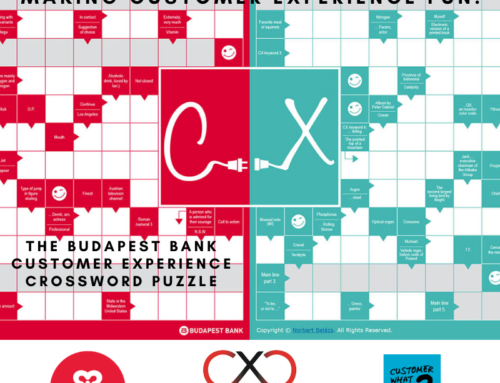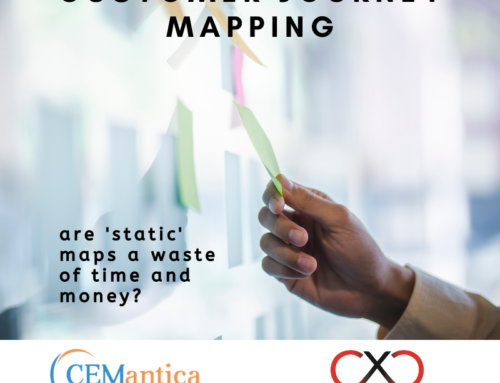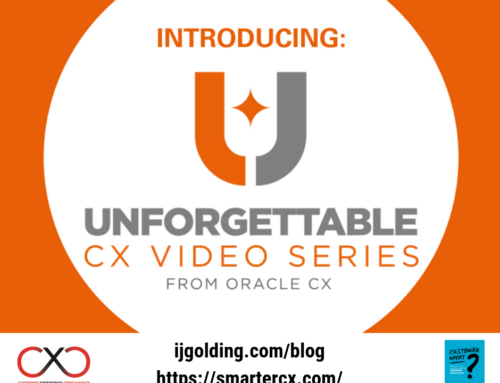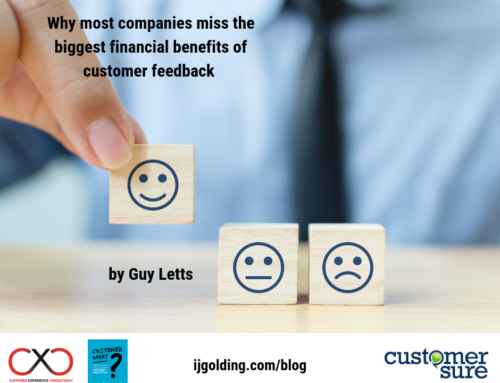
Every January in the UK, the business media tend to get rather excited. Whilst on occasion their excitement is slightly macabre, it is driven by their fascination and obsession with the reporting of retail trading results from the critical festive period during the last three months of the previous year. I may be paying a disservice to experienced journalists and commentators, but it is difficult to tell if they really are more excited by failure and doom, than they are disappointed by success and stability.
As I have been quoted as saying many times in the past, measurement is one of the most important competencies of all when it comes to the art of embedding a customer centric culture. Measuring business performance is just as important as measuring the perception of customers, employees, and operational capability. However, what becomes clearer and clearer every year (in my opinion), is that not only are businesses and journalists alike more focused on measuring financial performance than anything else, they are so in a retrospective, historical manner. In 17 years as an employee, every business I worked in was obsessed (for want of a better expression) with numbers on spreadsheets. Representative of ‘looking over your shoulder’, almost every conversation driving decision making was made by looking at the past, with little consideration for the future.

I must reiterate that there is nothing wrong with understanding whether a trading period has been successful or not. The point that I want to make here is that in ONLY assessing what has happened in the past, the decisions made by a business will tend to be almost entirely REACTIVE to what has already happened. Short term thinking is what leads organisations to lose sight of not just WHAT they are doing – it tends to also lead them to lose sight of WHY they are actually doing it and for WHOM. Reactive behaviour leads to an environment of almost constant and continuous ‘fire fighting’ that does not allow time or resource to focus on the strategic direction of the business and/or what needs to be done to ensure that the financial performance of the business can and will be sustained in the future.
Retailers describe the festive trading season as the ‘Golden Quarter’ – the rest of the calendar year is often dependant on the success (or failure) of this vital period in the year. So when financial performance is reported, it is usually done so by comparing the quarter that has just ended, with the same quarter from the previous year – in other words, a comparison is made from a period of time that has just passed, with a period of time that passed a year earlier. This is interesting to dissect… yet how often have you seen this reported at the same time as a description or prediction of what is likely to come in the future? How often are we told, either in public, or behind closed doors, what is being done strategically to ensure that the Golden Quarter in 2017 is going to be even more successful than the Golden Quarter in 2016 because…?
You may be reading this thinking that I am barking mad! You may well be right. How many business leaders would be prepared to make a statement (even internally) about future business performance? I have not met any who are happy to show off their crystal ball to the media! However what I am describing is the difference between short term reactive thinking and tactical decision making, with long term, proactive, strategic planning. The master of this is one of the world’s role best role models for Customer Centric Leadership – Jeff Bezos.

A personal hero of mine, Jeff Bezos has always been an avid and overt defender of looking into the future, rather than obsessing with the past – I have written about this before. Yet what inspires me is that this approach and attitude has never waned. In 2015, in announcing the first quarter results to shareholders, he wrote a letter – part of it went as follows:
To our shareowners:
A dreamy business offering has at least four characteristics. Customers love it, it can grow to very large size, it has strong returns on capital, and it’s durable in time – with the potential to endure for decades. When you find one of these, don’t just swipe right, get married.
Well, I’m pleased to report that Amazon hasn’t been monogamous in this regard. After two decades of risk taking and teamwork, and with generous helpings of good fortune all along the way, we are now happily wed to what I believe are three such life partners: Marketplace, Prime, and AWS. Each of these offerings was a bold bet at first, and sensible people worried (often!) that they could not work. But at this point, it’s become pretty clear how’ – special they are and how lucky we are to have them. It’s also clear that there are no sinecures in business. We know it’s our job to always nourish and fortify them.
We’ll approach the job with our usual tools: customer obsession rather than competitor focus, heartfelt passion for invention, commitment to operational excellence, and a willingness to think long-term. With good execution and a bit of continuing good luck, Marketplace, Prime, and AWS can be serving customers and earning financial returns for many years to come.
I have highlighted the sentences that stand out to me. Now let’s return to my original point – how often do we see businesses and the media reporting financial performance by looking at the future – not just the past? Now more than ever, for an organisation to be sustainably successful, it must constantly ensure that it understands how it can and will remain RELEVANT to its customers – not from a period of time that has already passed – but for a time that is yet to come.
To be sustainably successful, organisations cannot continually look in the ‘rear-view mirror’ – they MUST look to the future, obsessing about their customers needs and wants; reinventing their products, services and proposition to meet the changing needs and wants of their customers; investing in their people and technology to ensure that they are able to deliver what their customers need and want indefinitely.






Fantastic as usual! I once worked in a business where the CEO gathered the Professional Service and Support teams together and declared that “customers do not think we are friendly.” Her solution? “Fake being nice.” I remember asking them to set up a dedicated role to dig into the issues customers were facing and even wrote a report highlighting issues from Employees and Customers who trusted me to relay their feedback anonymously; it fell on deaf ears. For them, everything was about the financials.
It was like the Customer was an annoyance that they knew they had to placate. 300,000 USD in Consulting fees later after a huge amount of turnover and they ended up having to take the Yahoo escape route.